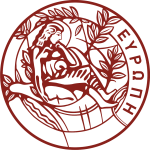Quality Policy for Education
Quality Policy for Education
Lifelong learning has been recognized as a strategic pillar of the European Higher Education Area since its beginning. Over time, it has played a key role in strengthening the social mission of Higher Education and implements policies and strategies at European and national level with the aim of achieving new knowledge, skills, abilities and the development of individuals on a personal and socio-economic level. Basic principles such as equality and inclusion are achieved through cooperation with stakeholders in various fields (e.g., health, social welfare, migration, employment, etc.) in order to create an environment of opportunity and inclusion and to promote equality, diversity, and the integration of individuals in an ever-changing socio-economic environment.
Following studies and according to the EHEA ( https://ehea.info/page-lifelong-learning) it has been found that lifelong learning can take various types and aspects:
- As a means of promoting equality, equal opportunities, and improving quality of life, ensuring access to higher education and adaptive learning environments for students of all ages, including the mechanism for increasing employability, upskilling, and retraining
- As a mechanism for building a knowledge-based society and economy, addressing the challenges of competitiveness and the use of new technologies
The learning process takes place through alternative and flexible methods of learning (synchronous, asynchronous, and blended learning), This is the cornerstone of lifelong learning, as it allows individuals to access courses and/or study programs based on their professional interests and/or employability, as well as their personal development. Lifelong learning is subject to the principle of public responsibility; accessibility, quality of provision, and transparency of information must be ensured. Finally, synergies between institutions and the wider economic community are an essential component in achieving the objectives of lifelong learning.
The Centre of Training and Lifelong Learning of the University of Crete accepts and implements the principles established by the European Higher Education Area. It organises all kinds of educational and training programmes for non-formal learning (outside formal education). It promotes the connection of vocational education and training with contemporary socio-economic reality, contributing to quality reskilling, update and further develop knowledge, abilities, and skills with the aim of improving employability, enhancing mobility, ensuring equal opportunities in the knowledge society, and strengthening social cohesion.
Finally, KEDIVIM has adopted UNESCO's fundamental principle of "Ensuring the right to quality education throughout life" in accordance with the recent report https://unesdoc.unesco.org/ark:/48223/pf0000379707 and responds to the 4th Sustainable Development Goal "Quality Education" https://www.un.org/sustainabledevelopment/education/ and is working intensively towards this direction.
Quality education is a strategic pillar for the Institution and KEDIVIM. Program evaluation is carried out after the completion of each program by the trainees and the scientific coordinators. The questionnaires explore, among other things, the degree of satisfaction with the training program in various thematic areas (learning objectives, learning outcomes, educational process, educational material, teachers/lecturers, infrastructure, teaching methods, teaching organization, etc.). The questionnaire gives participants the opportunity to express their views on issues relating to the training program as a whole. The Internal Evaluation Team evaluates the results by analyzing and processing the responses and makes the corresponding improvements and modifications. Over the three years that the evaluation has been carried out by participants, the overall satisfaction rate is over 70%, 2022 - 2023, 2023 - 2024 & 2024 – 2025, according to the consolidated responses per calendar year.
To achieve the above, the Centre of Training and Lifelong Learning of the University of Crete has:
- set the following strategic objectives: a) cooperation with stakeholders for the training of specific groups (training of the unemployed, training and employment of unemployed people aged 25-45 in the development of digital and green skills), b) targeted training for critical professional groups (e.g., tour guides, pharmacists, drivers, etc.), c) training for the unemployed and socially vulnerable groups, following the diagnosis of needs for their return to the labor market, etc.
- signing memoranda of cooperation with Organisations such as UNICEF, Children’s Villages SOS, the Ministry of Tourism, and the Public Employment Service (DYPA.), and implementing joint programmes. Each program corresponds to at least one Sustainable Development Goal https://kedivim.uoc.gr/index.php/en/engcourses/old-courses
- include in the discount policy groups from backgrounds with fewer opportunities or limited access (low family income, people with disabilities, unemployed people, etc.). Undergraduate students and doctoral candidates of the Institution have the opportunity to attend KEDIVIM's self-funded programs free of charge.
It implements free programs in which all individuals can participate regardless of gender, ethnicity, religion, disability, etc.
The Foundation, the Council, and the KEDIVIM Team aim is to provide reliable services and ensure the complete satisfaction of participants through the activities implemented by the Center, using up-to-date, innovative and competitive subjects, which are offered by all appropriate means to interested parties, without exclusion or in an unequal manner, with respect for human rights and the principles that govern them.


